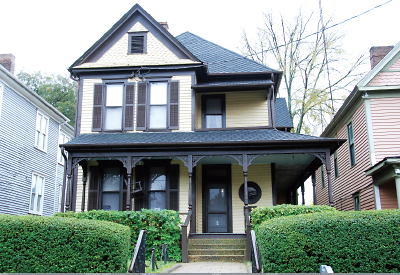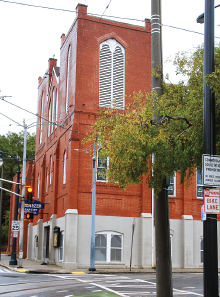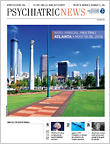The birth home of Martin Luther King Jr. and the recently renovated Ebenezer Baptist Church, where King’s preaching helped ignite the civil rights movement, have given Atlanta prominence in the history of the American civil rights movement.
APA members attending this year’s Annual Meeting can visit the church and tour the home as part of a visit to the King Center, the largest repository of documents and memorabilia associated with the slain civil rights leader. It was established in 1968 by Coretta Scott King to be “no dead monument, but a living memorial filled with all the vitality that was his, a center of human endeavor, committed to the causes for which he lived and died.”
The King Center is at the hub of the 23-acre National Historic Site, which welcomes some one million visitors each year. Free attractions include tours of King’s birth home and tomb, multiple exhibits, and a reflecting pool.
The only place on the tour of the National Historic Site that requires reservations is the King home at 501 Auburn Avenue, where King was born on January 15, 1929. Together with his grandparents, parents, siblings, other family members, and boarders, King lived in the house in “Sweet Auburn”—the center of black Atlanta—for 12 years. The home may be visited only on tours led by a park ranger, filled on a first-come, first-served basis. The 30-minute tours, conducted hourly, begin at 10 a.m. and end at 5 p.m. and are limited to 15 people each.
The rest of the King National Historic Site is self-guided, so no special arrangements are needed. There are several routes of public transportation that provide access to the park, but for APA members with access to a car, the King Center website offers the following directions for touring the site on foot:
After parking in the visitors’ lot on Johns Wesley Dobbs Avenue, follow the Civil Rights Walk of Fame past the statue of Mahatma Gandhi and proceed to the Visitor Center. It is here that visitors can sign up for the Birth Home tour and check out “Children of Courage,” an exhibit that educates children about the civil rights movement. Upon exiting the Visitor Center, turn right to view the International World Peace Rose Garden.
From there, visitors can travel to the historic Ebenezer Baptist Church (Heritage Sanctuary) at the corner of Auburn Avenue and Jackson Street. Three generations of Kings served as pastors and co-pastors at Ebenezer—King’s maternal grandfather, the Rev. A.D. Williams, who became Ebenezer’s second pastor in 1893; King’s father, who served as Ebenezer’s pastor from 1933 until his retirement in 1975; and King himself, who was co-pastor in 1947 until he left to attend Crozer Theological Seminary in September 1948. King returned in 1960 and again served as co-pastor until his assassination in 1968.
After leaving the church, visitors can proceed east on Auburn to enter the King Center’s outdoor campus, where they can view the crypt of King and his wife, the Eternal Flame, Freedom Walkway, and the reflecting pool. As visitors walk eastward along the pool to Freedom Hall, they can learn more about King.
The King Center contains the King Library and Archives—the largest repository of primary source materials on the slain civil rights leader and the American civil rights movement in the world. The collection consists of King’s papers and those of the organization he co-founded, the Southern Christian Leadership Conference, as well as the records of eight major civil rights organizations and of several individuals active in the civil rights movement. The archives also include more than 200 oral history interviews with King’s teachers, friends, family, and civil rights associates.
Several exhibits, including a photographic history of the lives of King and his wife and tribute rooms to Rosa Parks and Gandhi, can also be found in the King Center. ■
For more information about the Martin Luther King Jr. National Historic Site, click
here. To make an appointment at the Library and Archives, contact Cynthia Lewis at (404) 526-8983 or
[email protected].


